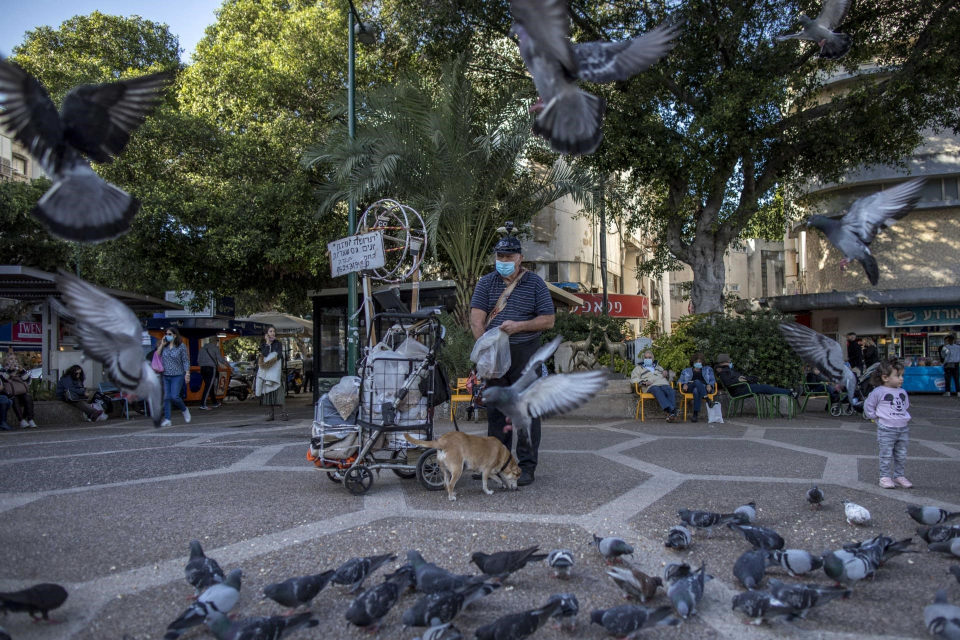The Marker, Adi Cohen, 22.01.2021
Rows of peeling residential buildings make up the urban center of Ramat Gan. Their color is yellowish, their walls reveal mold and their gutters are coated with rust. The old street level is dominated by dozens of stock and wholesale stores, some for cleaning supplies and some for toys and housewares. In between you can also see locked and darkened shop windows of the old footwear and clothing stores that have been operating in the area for decades, which have closed their activities and with them most of the human movement has also disappeared. The municipal square that meets the two main streets, Herzl and Bialik - crowded with pigeons but empty of people - also tells the unpretentious story of the old area, which cries out for renewal.
Almost a year has passed since the outbreak of the corona plague, and strolling through the main commercial arteries of Ramat Gan sometimes feels like a visit to an old shopping center in a remote development town, where time has stood still. It is sometimes difficult to remember that these are the bustling arteries of one of the most expensive and sought-after cities in the center of the country, and that Tel Aviv is a short drive away.
"Once upon a time, the center of Ramat Gan was like Dizengoff. There was a glow here, and everyone walked around here. Today there is a feeling of frustration and neglect, and not only do we lose - but also the city itself," says Bracha (full name reserved). The city that lives on Herzl Street, in a building where for years the TAMA 38 project has been shelved recently. From 2012 we promoted the project in the building, collected the tenants' agreements, found a developer and a lawyer to accompany us and even tried to connect to the nearby buildings. When the current mayor, Carmel Shama HaCohen , took office - all construction was stopped and the project went ahead. I can understand why it is good for the municipality, but it took us back many, many years, and it is not clear if there will ever be a project here. "

Orda Square in Ramat Gan. Mostly manned by pigeons Photo: Ohad Zweigenberg
The story of the residential building where Bracha lives is not unusual in the view of Ramat Gani. In the two and a half years since Shama HaCohen took office, Ramat Gan has become a city where urban renewal and real estate corruption have celebrated without a border - a scene of war between the municipality and contractors. Shama HaCohen announced that the city's infrastructure could collapse The building permits for TAMA 38 projects in the city. The dramatic move angered the contractors and apartment owners and reached the walls of the court, which rejected the municipality's position and ruled that it was disproportionate.
Shama HaCohen did lose legally, but it seems that the decision did not change his policy. In recent weeks, the municipality has released a new and controversial policy document, according to which it reduces the number of new housing units that can be added to each project - a move that is perceived by players in the local market as hindering projects.
"I wanted to make a noise. A loud boom that will send a message to contractors and developers, who will understand that the celebration is over - there is no more 'ask for as much as you want - and you will get' policy," admits Shama HaCohen. "Today everything is based on examining the infrastructure and balancing interests. On the one hand, we want to be nice to residents who want to renew and get rich, but not at the expense of the city and future generations. And the developers? They will always push and want more. It's their business. "What's right for the city? Despite many unpleasant moments I've been through in the last two years, I'm glad the message went through even if economic interests were harmed, and even despite the fact that I'm holding a gun license due to threats from contractors."
Carmel Shama HaCohen: "I wanted to make a strong boom that will send a message to contractors and developers, who will understand that the celebration is over - there is no more policy of 'ask for as much as you want - and you will get'"



